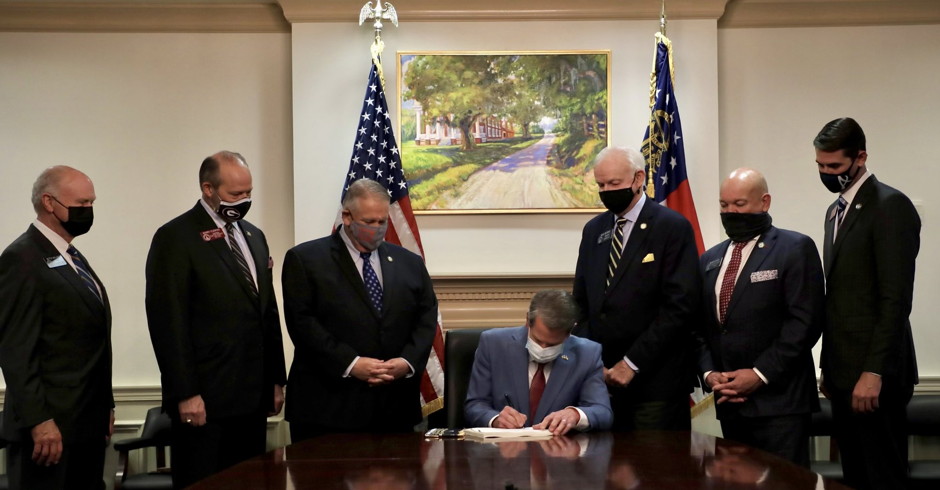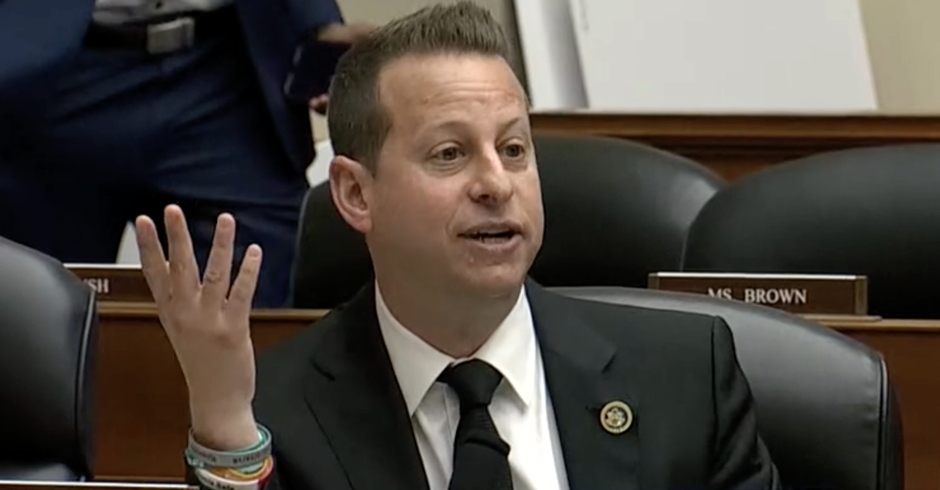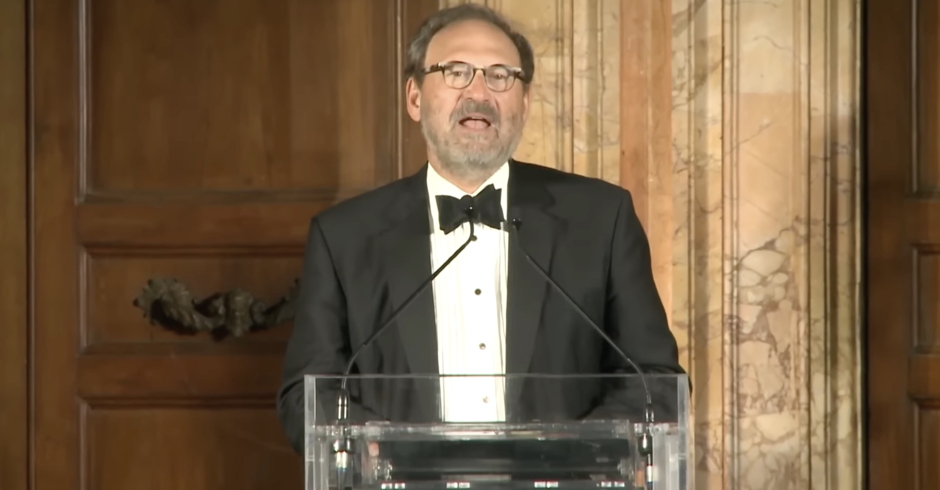OPINION
Kemp Chose a ‘Monument to Georgia’s History of Brutal White Supremacy’ as a Backdrop When Signing His Voter Suppression Law: Columnist

‘Signed Under the Image of a Notorious Slave Plantation’
The Philadelphia Inquirer‘s columnist Will Bunch went internet sleuthing after a picture of Georgia Republican Governor Brian Kemp surfaced showing the governor surrounded by a group of white lawmakers, presumably all Republicans as well, signing his voter suppression bill into law one hour after it passed the legislature.
In a Twitter thread, Bunch pointed out that readers should take note of the antebellum-style portrait behind Kemp as he signed the suppression law.
1. You’ve probably seen this picture of Georgia Gov. Brian Kemp and his gaggle of white men signing the state’s voter suppression law — the new, new Jim Crow. But there’s a shocking angle to this story that you haven’t heard. Sit down for this one… pic.twitter.com/edHPmyeoiu
— Will Bunch Sign Up For My Newsletter (@Will_Bunch) March 26, 2021
Crediting Twitter crowdsourcing, Bunch relates that the measure to limit Black voting was “signed under the image of a notorious slave plantation in Wilkes County, Georgia.”
On the painting, he notes, “you can see that the painting is clearly ‘Brickhouse Road — Callaway PLNT’ (PLNT for ‘Plantation…subtle, right?) by artist Olessia Maximenko from Wilkes County, GA’.”
3. If you scroll about halfway down this PDF link, you can see that the painting is clearly “Brickhouse Road — Callaway PLNT” (PLNT for “Plantation…subtle, right?) by artist Olessia Maximenko from Wilkes County, GA https://t.co/rnUGyhs9wR pic.twitter.com/mkd04jbXs5
— Will Bunch Sign Up For My Newsletter (@Will_Bunch) March 26, 2021
A promotional website, ExploreGeorgia, lists the Callaway Plantation as “a 56-acre historic site where — as the website cheerily notes — tourists can get “a glimpse into the by-gone era of working plantations in the agricultural South.”
(That website is an “Official website of the Georgia Department of Economic Development,” and that page has since disappeared after Bunch’s post was published.)
Bunch points out that ExploreGeorgia glosses over the fact that by the time of the American Civil War, the Callaway Plantation “only thrived because of the back-breaking labor of more than 100 slaves who were held in cruel human bondage.”
7. “…[T]here were some slaves who were unruly; so the master built a house off to itself and called it the Willis jail. Here he would keep those whom he had to punish. I have known some slaves to run away on other plantations and the hounds would bite plugs out of their legs.”
— Will Bunch Sign Up For My Newsletter (@Will_Bunch) March 26, 2021
“In short,” Bunch writes at The Philadelphia Inquirer, “the Callaway Plantation is a monument to Georgia’s history of brutal white supremacy that unfortunately didn’t disappear when Mariah Callaway and the other enslaved people were emancipated in 1865. By the 1890s, Georgia’s white ruling class enacted a series of harsh Jim Crow laws to segregate all public facilities and block most Black people from voting. The state, for all of Atlanta’s ‘Too Busy To Hate’ bluster, was a KKK hotbed in the 1960s’ civil rights era, and in the 1980s Georgia blazed a trail into the new era of mass incarceration and voter suppression, epitomized by Kemp and his purges of legitimate voters and other Jim Crow-inspired tactics.”
14… that took place behind the placid scenery of Brickhouse Road in Wilkes County, to the suppression now hidden behind a phony facade of “voter integrity.” This legacy is a crime against humanity, and it cannot stand – 30 –
— Will Bunch Sign Up For My Newsletter (@Will_Bunch) March 26, 2021
Image via Gov. Brian Kemp/Twitter
Enjoy this piece?
… then let us make a small request. The New Civil Rights Movement depends on readers like you to meet our ongoing expenses and continue producing quality progressive journalism. Three Silicon Valley giants consume 70 percent of all online advertising dollars, so we need your help to continue doing what we do.
NCRM is independent. You won’t find mainstream media bias here. From unflinching coverage of religious extremism, to spotlighting efforts to roll back our rights, NCRM continues to speak truth to power. America needs independent voices like NCRM to be sure no one is forgotten.
Every reader contribution, whatever the amount, makes a tremendous difference. Help ensure NCRM remains independent long into the future. Support progressive journalism with a one-time contribution to NCRM, or click here to become a subscriber. Thank you. Click here to donate by check.
 |



























